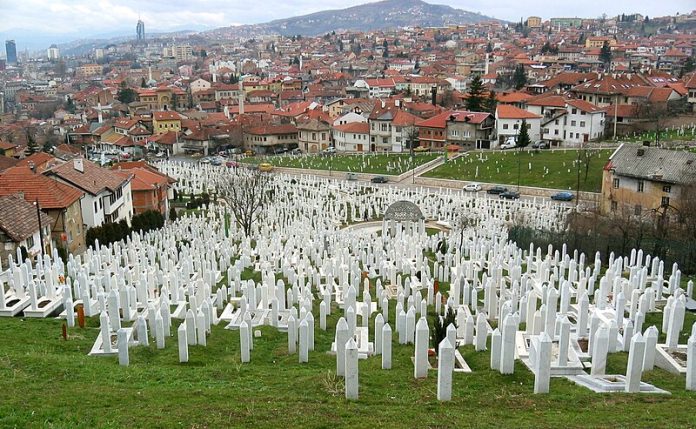29 May 2024: The United Nations General Assembly adopted a resolution on Thursday, May 23, 2024, establishing July 11 as the annual International Day of Reflection and Commemoration of the 1995 Genocide in Srebrenica. The resolution passed with 84 countries voting in favor, 19 against, 68 abstaining, and 22 not voting.
On July 11, 1995, Bosnian Serb forces captured the UN-protected enclave of Srebrenica during the Bosnian civil war. In the days following the capture, over 8,000 Bosniak Muslim men and boys were systematically killed by forces under General Ratko Mladic.
The resolution, proposed by Germany and Rwanda and co-sponsored by more than 30 countries, including all former Yugoslav republics except Serbia and Montenegro, designates July 11 as the “International Day of Reflection and Commemoration of the 1995 Genocide in Srebrenica.” It also unequivocally condemns any denial of the Srebrenica genocide and actions that glorify individuals convicted of war crimes, crimes against humanity, and genocide by international courts, including those responsible for the Srebrenica massacre.
In addition to establishing this memorial day, the resolution calls on UN member countries to preserve the established historical facts of the genocide and condemns any attempts to deny it.
The 1990s saw widespread ethnic cleansing by elements of the Bosnian Serb army, acts classified as genocide by the United Nations General Assembly and upheld by three convictions in German courts, which employed a broader interpretation of genocide than that used by international courts. The Srebrenica massacre was officially recognized as an act of genocide by the International Criminal Tribunal for the Former Yugoslavia, a finding later upheld by the International Court of Justice (ICJ).
On March 24, 2016, Radovan Karadžić, former Bosnian Serb leader and the first president of Republika Srpska, was convicted of genocide in Srebrenica, war crimes, and crimes against humanity, and was sentenced to 40 years in prison.
In 2009, the European Parliament passed a resolution calling for the European Union to commemorate July 11 as a day of remembrance and mourning for the Srebrenica genocide. This resolution explicitly recognized the ICJ’s findings and reiterated that over 8,000 Muslim men and boys were executed, and nearly 25,000 women, children, and elderly people were forcibly deported, marking the event as the largest war crime in Europe since World War II.




